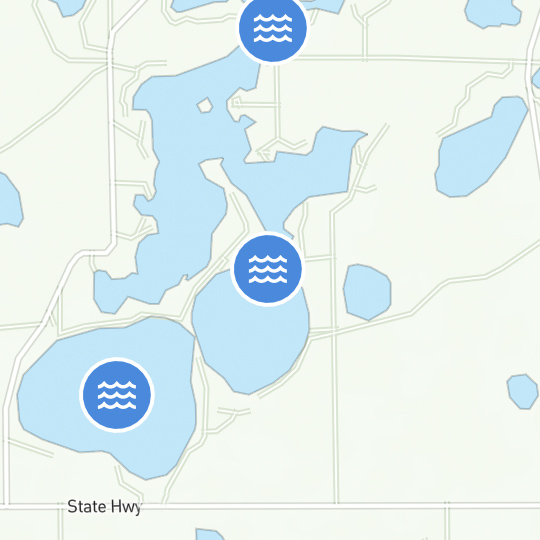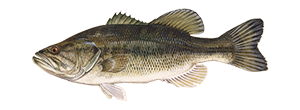Fly Tying Starter Kit
A starter or beginner fly tying kit makes fly tying fun and easy to learn. With just a few basic tools and materials, you can start tying your own flies to use on your fly fishing adventures. Just think of how rewarding it would be to catch a trout or a bass on a fly that you tied yourself.
Fly Fishing Starter Kit Tools
You don't need a lot of fly tying tools for a basic fly tying kit. In fact, when it comes to fly tying for beginners, sometimes the best fly fishing starter kits for fly tying are pre-packaged fly tying starter kits. These kits that generally be purchased anywhere fly fishing equipment is sold. Or, you can assemble your own fly tying starter kits by including a few essential fly tying tools.
Vise
The primary purpose of a fly tying vise is to hold the hook securely while you tie the fly. Standard or traditional vises are a good choice for beginners because they will give you more control over the amount of tension as you tie.
Bobbin
The bobbin is the spool that holds the fly tying thread while you tie. This is a simple tool that has two wire "legs" which hold the thread spool under tension while feeding the thread through a narrow tube.
Bobbin Threader
A bobbin threader is a narrow wire loop with a handle that is used to pull your fly tying thread through the narrow tube of your bobbin.
Scissors
A pair of small, steel scissors that are smooth, tight, and sharp is a must for your fly tying starter kit. Scissors are used for cutting your fly tying thread as well as trimming feathers, hair, and tinsel.
Bodkin
A bodkin is a small metal rod with a thin, pointed tip that is most often used to apply cement to a fly.
Hackle Pliers
Hackle pliers are tools used for wrapping hackle feathers around your fly hook.
Hair Stacker
The hair stacker evens out the hair tips, which is vital for proper balance and proportion.
Whip Finisher
Whip finishers are used to knot the thread when the tying is complete to keep the thread from coming undone.
Fly Fishing Starter Kit Materials
There are many different types of tying supplies and materials that can be used to create flies. From shiny pieces of tinsel that mimic the reflection of baitfish scales to multi-colored feathers of different sizes, you can tie many different flies to include in your first fly fishing starter kit for fly tying.
Thread
You will need a few different colors of fly tying thread for tying feathers or hair to your hooks. Nylon and polyester fly tying threads are thinner and stronger than silk or cotton.
Tinsel
Tinsel is often incorporated into minnow fly patterns to add shine and sparkle.
Hooks
Once you know which species you plan to target when fly fishing, you need to determine the size and type of hook to use for your flies.
Feathers
Feathers are one of the most popular fly tying materials and can be purchased in a virtual rainbow of colors.
Hair
The hair from animals such as deer or elk is often used when tying different fly patterns such as a caddis pattern or mouse pattern.
Eyes
Metal beads, holographic decals, and pre-painted fly eyes are options you can choose from when tying your own flies. The type of eyes you use will depend on the fly pattern you decide to tie.
With the number of fly tying tools and materials that are available, fly tying can be as easy or complex as you want to make it. Start tying your own flies with these simple tools, and then cast one into a local river or stream near you to see what you might catch.
Learn more about different types of fly fishing flies, started fishing flies, and aquatic insects in our next section.
3 Beginner Fly Patterns
KEEP LEARNING

How to Tie the Non-Slip Loop Knot
The non-slip loop knot is a popular and reliable choice for securing hooks, lures, and other tackle to your fishing line.
LEARN MORE

Socials
Take me fishing social media links
LEARN MORE

TakeMeFishing x Teen Vogue
Join us on a creative journey as fashion designer Ahmrii Johnson walks us through her collaborative vision and process with Teen Vogue and fashion brand, Rentrayage, to create a special piece.
LEARN MORE


.png?lang=en-US&ext=.png)